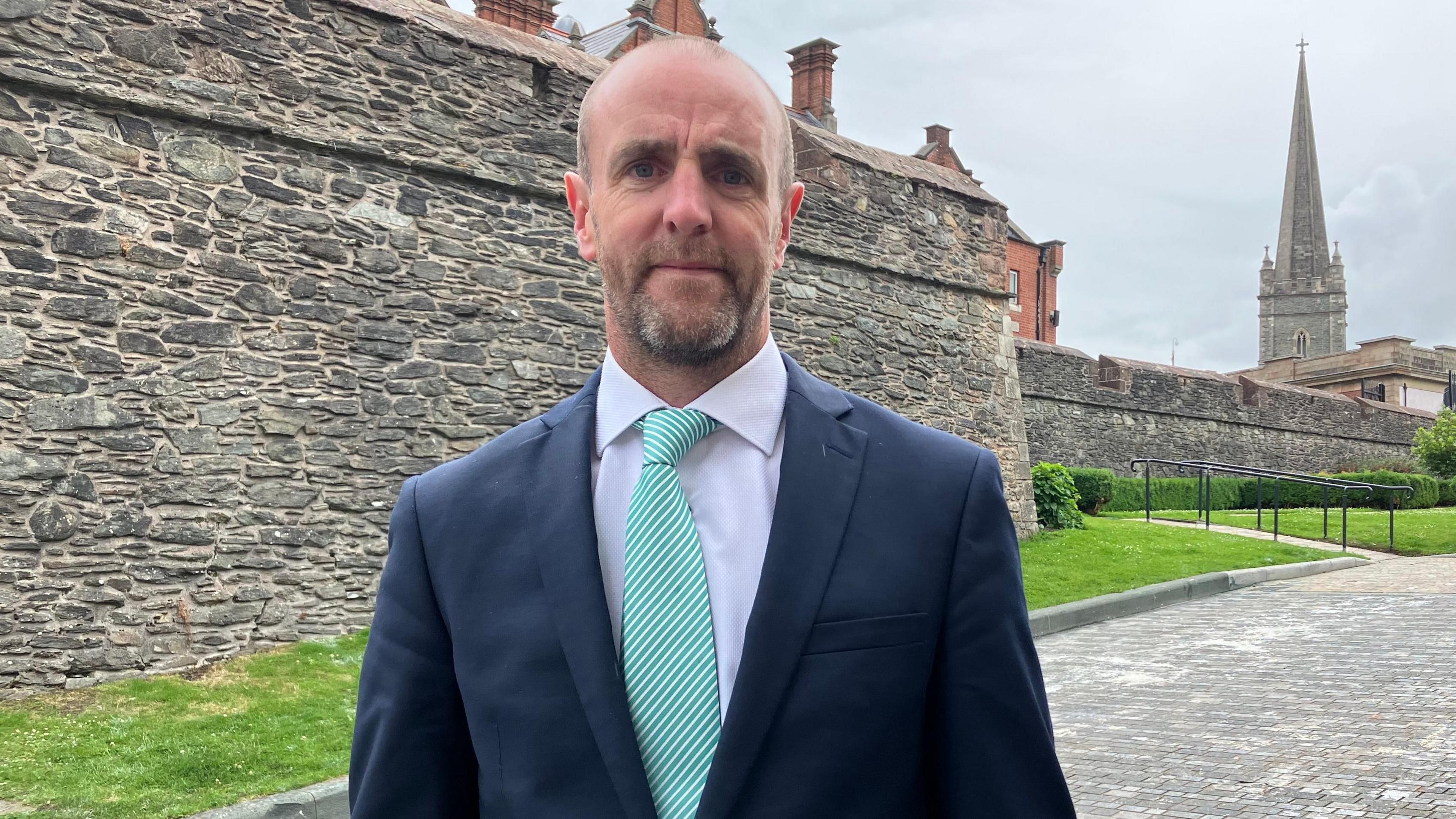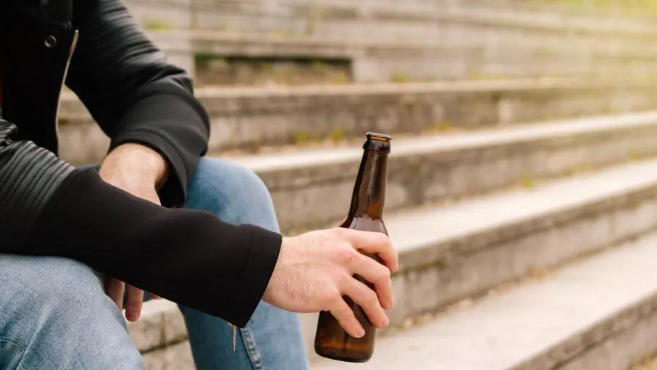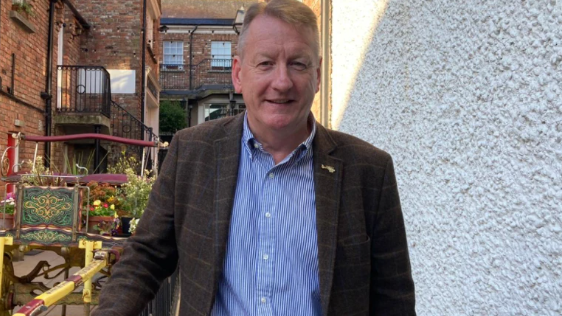Call for tougher powers to tackle street drinking in Derry

SDLP MLA Mark H Durkan says more must be done to support vulnerable people engaging in street drinking and anti-social behaviour
- Published
A politician has likened parts of Londonderry city centre to the "Wild West" amid growing concerns about street drinking, drug-taking and associated antisocial behaviour.
SDLP MLA Mark H. Durkan wants the police to be given more powers to tackle the problem.
Under current laws, they can confiscate alcohol from anyone under the age of 18 found drinking in public, but not adults.
The Department of Justice (DoJ) is considering new legislation that would grant police the authority to seize alcohol from adults in "certain public order situations".

Mark H Durkan wants the police to be given power to seize alcohol from adults who are drinking in public
The politician said he hoped the proposed changes would give officers the tools they need to tackle the problem and restore confidence in the city centre.
Speaking in the Assembly on Monday, he said: "Parts of Derry city centre at times now resemble the Wild West with groups of vulnerable individuals drinking and engaging in anti-social behaviour.
"It's not only putting them at risk, but it also impacting negatively on locals, tourists and local economy.
"Police have lamented the lack of legislation to permit them from confiscating alcohol from adults and believe this would be a game-changer for tackling this issue."
In response, Justice Minister Naomi Long said her department was proposing providing the police extra powers to seize alcohol from adults "in exceptional circumstances such as certain public order situations".
But she said there was "no desire to penalise vulnerable individuals".
Cathereen Wells is from HURT, a voluntary organisation in Derry supporting people with drug and alcohol addictions.
Speaking to BBC Radio Foyle's North West Today programme on Wednesday, Ms Wells said she understood the concerns from the public and businesses.
"Nobody wants to see someone in distress or crisis on our city streets," she said.
"If we keep simply moving people from one doorway to another, we'll continue to see the same faces and the same pain."
Ms Wells said no one decides to develop an addiction or become homeless.
"We can't punish someone out of addiction; we can only support them," she said.
Mark H. Durkan told the programme that greater support was needed to help individuals involved in substance-related antisocial behaviour.
"I have been down to these areas and seen some of the people engaging in this and they are products of a broken society which has gotten worse over the years.
"Services and support programmes have been stripped of funding and that has widened the cracks for vulnerable people to fall through.
"This doesn't mean we should accept what is going on in these areas."

Jim Roddy says there are real difficulties with on-street drinking in parts of the city
Jim Roddy, manager of Derry's City Centre Initiative organisation, said there were serious issues in various parts of the city involving people with complex needs engaging in street drinking.
"We have met with three justice ministers over this and, since Covid, the issue has gotten so much worse," Mr Roddy said.
"This is happening in a number of areas, and the PSNI, the council, the Housing Executive, community safety wardens, and my own staff have worked very hard to address it - trying to engage and find solutions.
"This behaviour is driving people away from local businesses, but it's also distressing for those who witness it and people working in the area are affected as well."
He said addressing the problem was his organisation's "top priority" because they wanted to support vulnerable people while also allowing businesses and residents to "go about their lives".